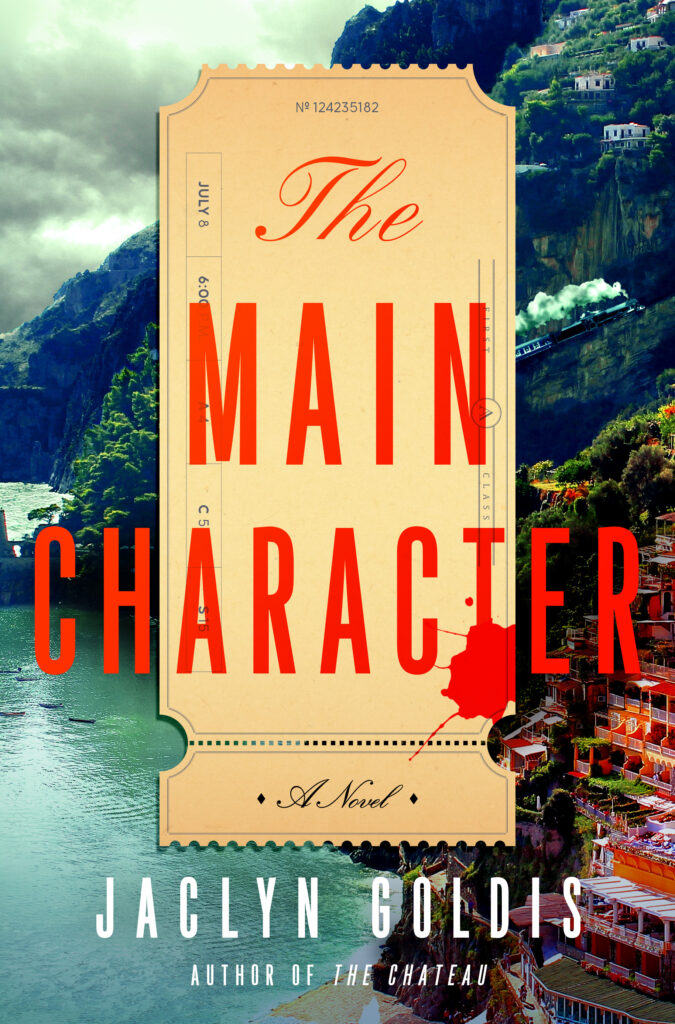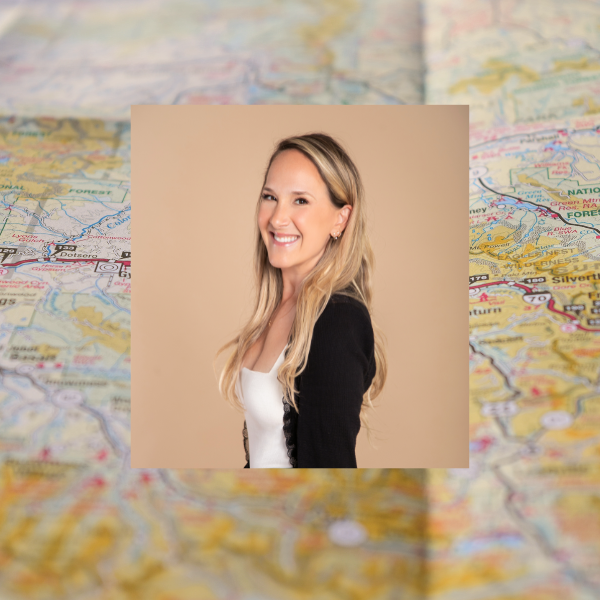In Jaclyn Goldis’ divinely written novel out May 21, The Main Character, the reader is on more twists and turns than a luxury train ride, which is part of the story’s setting. Ginevra Ex is a bestselling novelist who for her latest plot brings her main character, Rory Aronov, onto a lavish Italian getaway. When Rory sees people familiar to her, she goes from delight to dismay. It is The White Lotus meets Murder on the Orient Express.
My interview with Jaclyn Goldis includes how she wrote complex characters and a fulfilling older character, along caring for herself while honoring her family’s history.
CW: mention of the Holocaust, childbirth death, and mention of rape
- What is your definition of feminism?
To me feminism means that all beings are sacred and equal, regardless of gender. It means cultivating a world that honors the divine feminine within all individuals, including aspects like nurturing, intuition, creativity, and receptivity. And it also means embracing compassion, empathy, and love in the pursuit of justice and equality.
- What did you want to focus on while creating complex characters?
Characters to me feel less like a choice and more like seeing what shapes arrive on the page. I know that sounds amorphous, but I suppose I’m in the spiritual camp of storytelling. Really, I just focus on telling the story that seems to come and asks to be told. I aim above all to entertain, and to present people who are not black and white. I am Jewish, and I enjoy writing Jewish characters. Here, I try to present Jews in their wide breadth of backgrounds and nationalities and histories and present-day manifestations. Media has often presented only certain kinds of Jewish characters, and with my books I’m really striving to go beyond the typical connotation of what and who is a Jew.
- Wealth is a present theme. Why is wealth a significant part of telling this story?
Well, as a reader I’m a big fan of armchair traveling into luxurious destinations I haven’t been to or wouldn’t otherwise visit, and as a writer I have the same fun writing those kinds of stories. It’s just joyful to torpedo into a world of opulence outside your norm! But in general, I think themes of wealth generate interesting power dynamics and stark contrasts, especially when there are extremely wealthy characters and then others who are very much not. Wealth can also play into oppression, greed, and jealousy, all of which often come knocking on the narrative when you are a writer of murder mysteries!

- Ginevra is an empowering, older woman. How was shaping her narrative and identity?
Ginevra is one of my favorite characters I’ve ever written. I knew from the start that her traumas from her childhood would inform her life choices, and it was really interesting to play with the conceit that she needed to hire main characters for her novels in order to avoid looking at and digging into her painful past. As authors, we are always mining our own experiences, even in remote, subconscious ways, and I thought how fascinating it might be to weave a character who puts her entire past in a lockbox, not to be accessed. Until, of course, she is forced to confront it…
- Your author’s note shares that the story is close to your heart and loosely inspired by your father and his parents. How did you care for yourself while writing this story? How did you want to honor your family’s history?
I really love these questions. I think it’s not discussed enough, how creatives must take care as creativity is inherently an exercise of excavating ourselves. In this case, yes, the story is close to my heart, and inspired by my father’s and his parents’ stories. My father and his family experienced much persecution as Jews in the former Soviet Union, and his pathway to emigrate to America was fraught and dangerous. Truthfully, by the time I arrived at writing this book I had spent a lot of time integrating and learning about my family history. This included a family trip to my father’s small hometown in Zhitomir, Ukraine, and even three years spent writing a memoir about his life, that I haven’t yet chosen to publish. So caring for myself was easier at this later stage because I’d already spent a lot of time processing his stories. I think in general though, being soft with the writing process when it feels difficult is how I operate. Sometimes I can feel myself writing up against some edge, and I always listen to my intuition about whether to keep going or take a breather. At times, the answer is to plow forward, and other times it’s to rest and wait for the words to come instead of forcing them. And to do all the things I typically do to take care of myself, like breathwork, yoga, Vedic meditation, somatic practices, being in nature, etc.
In terms of honoring my family’s history, I think this is a living, breathing act more than any one book. Certainly, I am really proud of how this book is inspired by aspects of my family’s history, and I am proud to illustrate a slice of Jewish history and life not ordinarily written or talked about. But I think in general, I live a proud Jewish life, and I am a proud Jewish author writing Jewish stories. I try to live my life with integrity and love and courage and authenticity. Who I am in the world feels like the greatest tribute of all to my family history.
Thank you, Jaclyn Goldis, for speaking with Feminist Book Club!





